Is TikTok safe? What to know about the popular (and controversial) app in 2025
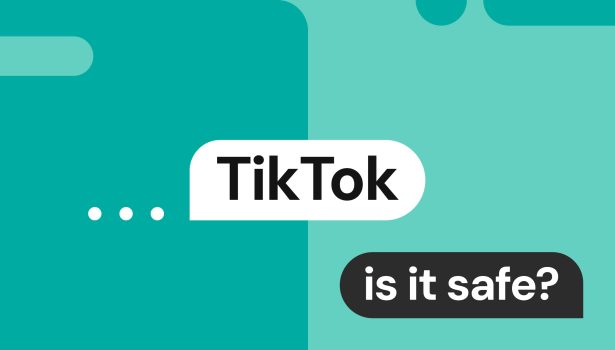
In and of itself, TikTok is safe to use, as long as you’re taking the usual social media precautions. There’s no malware built in, and it encrypts user data. From a privacy and cybersecurity perspective, it’s no worse (and no better) than other social apps.
TikTok has certainly caused a lot of fuss in the political realm, with lively debates on Reddit over whether the app poses a national security threat or if the proposed ban is just due to paranoia, political grandstanding, and lobbying by Google and Meta. As of now, there’s no clear evidence that TikTok is used to spy on ordinary Americans, or that it poses a direct, proven threat to national security.
Politics aside, it’s certainly possible to encounter things that could compromise your health or bank account. The onus is on you as a user to learn how to detect scams, misinformation, and dangerous “challenges” and trends.
What makes people question TikTok’s safety?
There are two main things contributing to the app’s reputational issues: how much data it collects on users, and the fact that its parent company, ByteDance, is based in China—a country the United States has had a fair amount of geopolitical tension with. Other concerns include misinformation and negative influence on young minds, ranging from reduced attention spans to content promoting eating disorders. Here’s a deeper dive into all these issues:
Concerns about data collection and tracking
It’s true, TikTok does ask for a lot of permissions when you install it—microphone, camera, contacts, location, etc. As for what user data is collected, the company’s Privacy Policy outlines the following:
- Profile data (your name, age, password, etc.)
- Content data (your videos, livestreams, what you write on posts, etc.) and the associated metadata (details about your content)
- Browsing data (what you’ve been watching on the app)
- Message data
- Purchase information
- Device information (IP address, mobile carrier, keystroke patterns, etc.)
- Location through IP address and other signals (though precise GPS data is no longer collected from U.S.-based users)
With your permission, TikTok may also collect info on your contacts and anything in your device clipboard.
While this may seem like too much, this is actually typical of social media apps. Accusations of data collection overreach have also been lobbed at Facebook, Instagram, WhatsApp, and even YouTube.
Another thing that’s attracted attention is TikTok’s in-app browser, which contains JavaScript code that has the technical capabilities to track users’ keystrokes (known as “keylogging”). TikTok explains that this code is for debugging and performance monitoring, but some researchers say this type of code should only be present in early versions of an app, not the final version downloaded by a billion people.
TikTok isn’t the only app using an in-app browser—Facebook, Instagram, and Snapchat all do as well—but it’s apparently the only one logging keystrokes, and it also makes it more challenging to switch over to a regular browser.
Allegations of spyware and surveillance
TikTok’s Chinese ownership has some people thinking that it could enable the Chinese Communist Party (CCP) to track and influence American users. Unlike the U.S. government, whose ability to force social media companies to hand over user data is limited, the CCP has broad data access powers through its National Intelligence Law. TikTok, however, says it’s never been asked to share data, and would not provide it if it were asked.
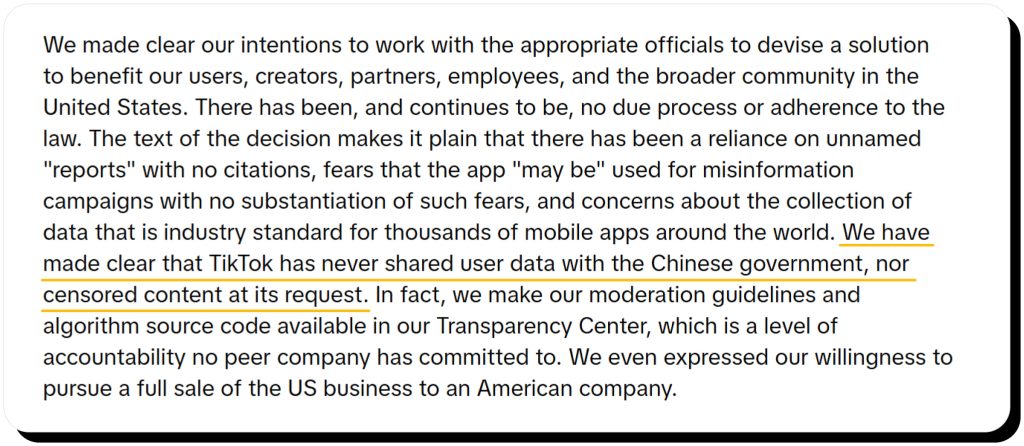
So, is TikTok spyware?
There have been a few incidents that seemed to support this idea, but only up to a point. In 2022, a BuzzFeed News report cited a leaked audio from internal TikTok meetings in which employees said that “everything is seen in China”—meaning U.S. user data.
These revelations prompted “Project Texas,” in which TikTok spent $1.5 billion to start storing all U.S. user data on servers operated by Oracle (an American company based in Texas). Nevertheless, engineers based in China could still access this data for prolonged periods, and Forbes reported that ByteDance employees used TikTok to track the physical locations of journalists who were reporting on the company. (ByteDance later fired these employees.)
Ultimately, no official public evidence proves that TikTok is functioning as covert spyware on behalf of the Chinese government. However, the allegations have nonetheless led to TikTok being banned on government-issued devices in some countries, including the U.S. and Canada.
Ignoring the options of shoring up Project Texas or passing a federal privacy law, United States lawmakers tried several times to ban TikTok for all users nationwide. However, the attempts were unsuccessful and the app is still operational as of mid-2025 due to court delays and deadline extensions.
Algorithm-driven content and user profiling
Social media algorithms have been stirring up controversy for more than a decade now. As they evolved into today’s highly personalized, curated feeds, they’ve been accused of creating echo chambers, suppressing critical thinking, and making us believe that radical, fringe views are more widely held than they really are.
TikTok’s algorithm uses its treasure trove of behavioral data to customize content feeds with machine learning. Every way in which a user has interacted with content previously goes into determining what shows up on their For You Page (FYP)—the set of suggested videos they see immediately upon opening the app.
Obviously, the suggested content will dwell on the topics and opinions that seem to interest and engage the user. This might seem harmless—after all, who doesn’t want to see content they like?—but over time, it can lead to algorithmic echo chambers. As TikTok’s system learns exactly what keeps your attention, it will continue feeding you similar viewpoints and creators, while filtering out content that challenges them. The result is a reinforcement of bias: users become more convinced of the credibility and popularity of certain beliefs simply because they see them repeatedly, not because they reflect reality. This constant validation can suppress critical thinking, reducing the incentive to question information or consider alternative perspectives.
This harmful dynamic isn’t unique to TikTok, but the app’s highly engaging, rapid-fire video format and powerful personalization system make it particularly effective at funneling users into tightly curated information bubbles, often without them realizing it.
Misinformation, dangerous trends, and harmful content
While many TikTok trends are harmless dances and jokes, others can be dangerous and even deadly. These include the Blackout Challenge, in which users try to asphyxiate themselves to the point of losing consciousness, and the BORG drinking trend, where users document their consumption of giant jugs containing alcohol, water, flavor packets, and sometimes caffeine.
These trends thrive on TikTok because the platform’s short-form, viral-friendly format makes it easy for shocking, sensational videos to spread quickly before moderators can catch them. The app’s moderation systems, which rely heavily on automated scanning, are often too slow or inaccurate to keep up with the volume of new videos, allowing harmful content to circulate widely before being removed (if it is removed at all).
In addition to dangerous challenges, TikTok is rife with misinformation, including fake health hacks, conspiracy theories, and questionable life advice. Because the platform prioritizes engagement, content that is emotionally charged or sensational—even if false—is more likely to go viral, outpacing factual information.
This creates a cycle in which misinformation and dangerous content are not only available on the platform but are actively rewarded with views, likes, and algorithmic promotion.
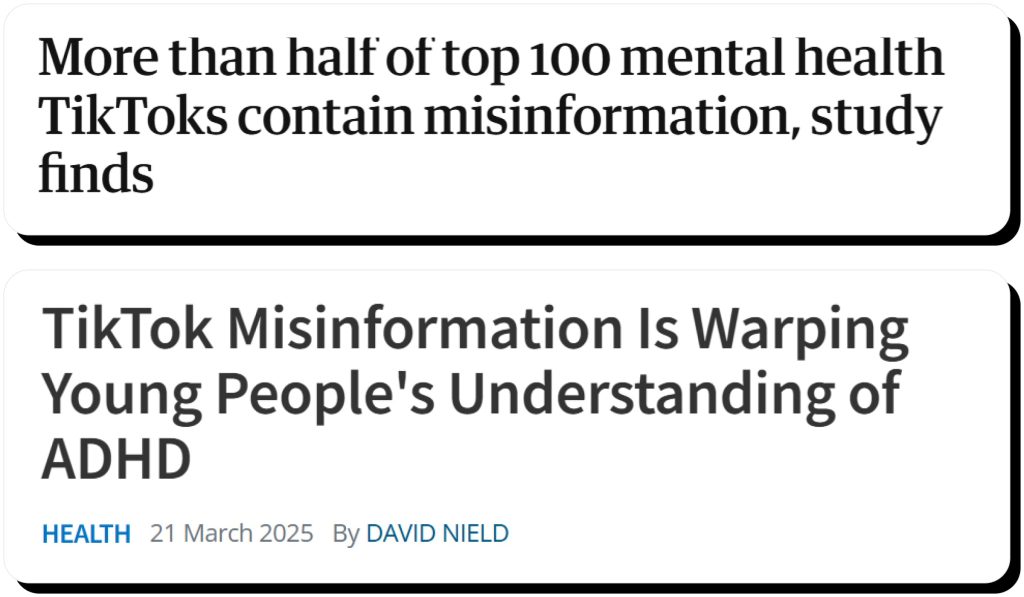
Does TikTok steal your information?
TikTok’s non-consensual harvesting and sharing of biometric data was the subject of a set of lawsuits a few years ago, which the company paid $92 million to settle in 2021. TikTok denied any wrongdoing, but decided to settle the case nevertheless. However, yet again this is not something only TikTok has been accused of—Facebook settled a similar privacy lawsuit in 2020.
As described earlier, TikTok does collect a wide range of user data and it surely goes beyond what is necessary for the app’s core functionality. Investigations have found that TikTok can track users’ interactions in detail, such as how long they watch a video, what they pause on, and how they scroll—to feed its powerful recommendation algorithm.
But does it actually steal your data?
Not exactly—at least not in the sense of hacking into your phone or taking information without any disclosure. When you agree to TikTok’s terms of service, you consent to the excessive data collection. The controversy comes from how much data is collected, how it’s used to refine your feed, and concerns over potential access by foreign entities, not from hidden data theft.
Is TikTok safe to use for kids and teens?
Kids and teens have a heightened sensitivity to peer pressure, comparison culture, body image issues, and anxiety. With TikTok’s constant (and addictive) stream of short-form videos tailored to each user, youngsters who stumble upon harmful content—say, videos glorifying anorexia—are likely to be shown more content of that type, exacerbating the harm. According to Amnesty International, the app’s content recommendation system has demonstrated a tendency to repeatedly recommend content related to self-harm and body image issues to young users.
TikTok has been trying to make the app safer: by default, underage users’ accounts are more private and have restrictions on direct messaging and commenting. The app also limits push notifications for teens during nighttime hours. As for content moderation, TikTok ’s algorithm is designed to avoid showing age-inappropriate videos. However, enforcement is inconsistent, and reports show mature or harmful content can still slip through.
The company recently came out with a “Family Pairing” feature that gives more control to parents and allows linking their own TikTok account to their child’s and controlling various aspects of their app usage (screen time, restricted content, etc.).
What TikTok is doing to improve safety
Admittedly, it’s not easy for social media companies to monitor the millions of posts uploaded each day to their platforms. TikTok has been making an effort to implement a number of measures to keep its community safe. These include:
- Community guidelines. The app works to remove content that violates its rules and restrict certain videos from showing up on the FYP. However, many users feel like these updated guidelines go too far or are implemented inconsistently.
- Content moderation. TikTok uses human content moderators alongside AI to scout out and remove harmful content.
- Built-in safety features. TikTok has several features to improve safety, including a restricted mode for inappropriate and mature content, comment and message controls, and screen time limits.
- Policy updates and reports. TikTok regularly publishes “Transparency Reports” where it details the volume and categories of content it removes, and how it responds to government requests for user data or content takedowns.
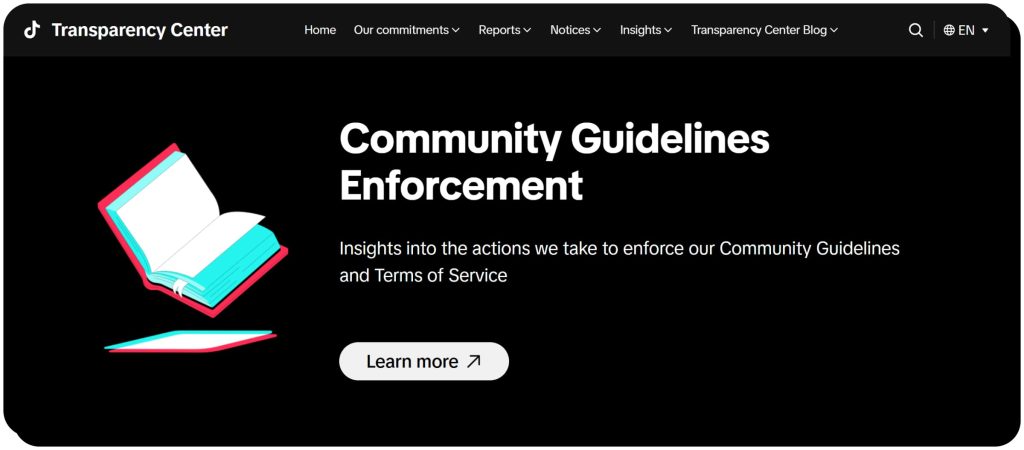
Should you download TikTok?
For the average person, TikTok is relatively safe if used mindfully. Individual responsibility is the key to avoiding addictive scrolling behavior, learning how to detect misinformation, and keeping an eye out for scams. As long as you understand the risks and are able to manage your settings effectively, TikTok won’t do any more harm than any other social media platform.
Kids and teens should use TikTok only under adult supervision. If you’re a parent, be sure to educate your child about privacy, digital boundaries, and mental health risks before letting them use the platform independently.
However, you might want to avoid TikTok if you are:
- very privacy-conscious
- struggling with anxiety or low self-esteem
- prone to digital addiction
- easily influenced by trends
- working in high-risk occupations or sensitive roles
In these cases, TikTok’s algorithms, abundance of misinformation, and invasive data collection can pose a greater risk. While the app can be fun and engaging, it’s important to weigh these risks honestly and consider whether the potential downsides outweigh the entertainment value for your personal situation.
How to use TikTok safely in 2025
The following practices will help you make your TikTok experience more private and safe:
- Set your account to private. This helps control who can see your videos and interact with you, reducing unwanted attention and harassment. It also helps protect your personal content from being downloaded or shared without your consent.
- Limit data sharing and tracking. You can go to the “Settings and Privacy” menu option to change—to a certain extent—how TikTok collects and uses your data. For example, you can switch off the “Targeted Ads” option or disable some permissions.
- Use a VPN. VPNs have been proposed as a solution for accessing the app in the case that TikTok does eventually get banned in the U.S. While there’s debate over how effective that may be, one thing that VPNs are definitely good for is hiding your IP address and protecting your data from being stolen on unsecured networks.
- Avoid clicking on third-party links. Whether in DMs, comments, or video descriptions—it’s better to avoid clicking on links altogether if you’re not certain of the individuals who left them. Third-party links may turn out to be phishing, looking to steal your info or infect your device with malware.
- Familiarize yourself with common scams. It’s a good habit to research the types of scams that are rampant on every social media app that you use and equip yourself with tips on spotting them.
- Avoid sketchy trends. Even if the videos make it look like it’s all fun and games, don’t get tempted to participate in risky behavior in an attempt to go viral. Keep in mind that the people who were severely harmed by the trend probably didn’t end up posting a video.
- Don’t believe information blindly. Always verify your sources and do research on a variety of reputable platforms in the case of politically charged topics, health advice, or other serious information.
- Set screen time limits. The best way to avoid getting addicted to the never-ending scroll is to have strict stop times in place. If you’re a parent, use Family Pairing to restrict your kid’s screen time.
- Report misinformation and harmful content. Just because you can recognize dangerous and misleading content, doesn’t mean others can as well. Help the TikTok community out by reporting harmful things.
FAQs
Does TikTok steal your data?
TikTok doesn’t steal data in the sense of getting it without permission—you consent to its excessive data collection when you accept the app’s terms. The concern isn’t secret theft but how aggressively TikTok gathers data, how little control users have over it, and the potential for misuse.
Does TikTok spy on you?
TikTok doesn’t spy on you in the sense of secretly accessing your data or camera. All the permissions and data collection practices are described in its Privacy Policy and Terms of Use, though buried in the fine print and legal language.
Is TikTok dangerous?
TikTok is not dangerous per se, but it has been shown to be highly addictive. Moreover, the platform contains a lot of misinformation and dangerous trends and challenges, so users should double-check the info they consume.
Should I let my kid use TikTok?
Parents shouldn’t let their child use TikTok with free rein, as the risk of them encountering harmful content is too high. Use features like Family Pairing to keep an eye on their usage and control their screen time and teach them how to use social media responsibly.
Can I use TikTok without giving it access to my data?
You can adapt your privacy settings to minimize how much data you give TikTok (such as letting it access your contacts or not), but ultimately, you’re going to have to let it collect a fairly large amount of personally identifiable info.
Is TikTok safe to download?
The TikTok app is safe to download as it doesn’t contain malware or viruses. However, you should be aware of the company’s aggressive data collection practices.

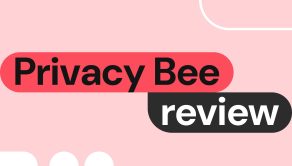



Mark comes from a strong background in the identity theft protection and consumer credit world, having spent 4 years at Experian, including working on FreeCreditReport and ProtectMyID. He is frequently featured on various media outlets, including MarketWatch, Yahoo News, WTVC, CBS News, and others.